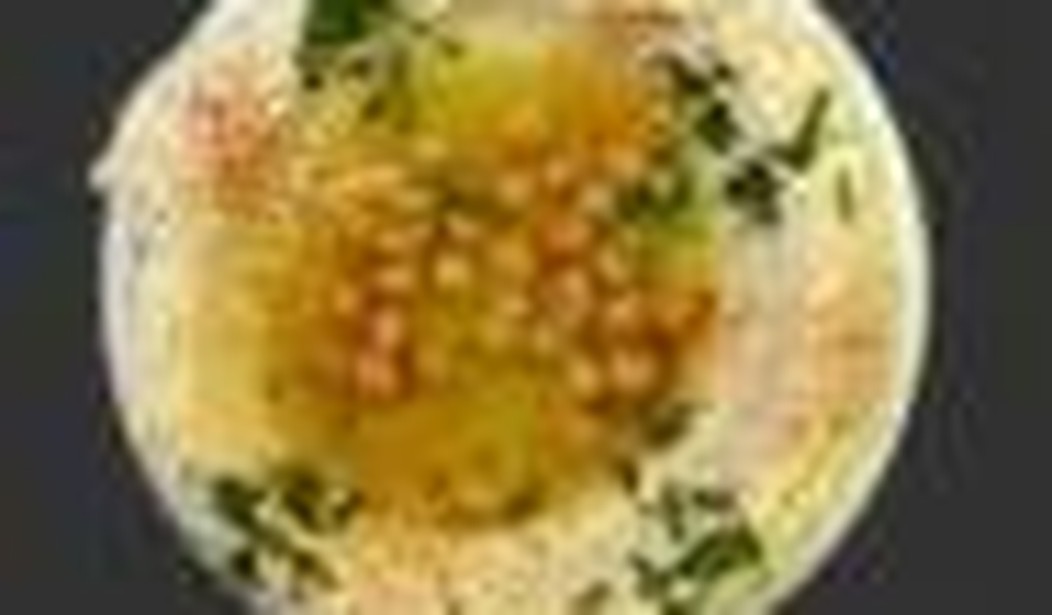The first time I was accused of “stealing food” was back in the late 1980s. It was World Fair week on my Boston-based college campus, and representatives from several of the other Middle Eastern student groups accused us, the Israelis, of “stealing” their national food and claiming it as our own. That food was, of course, hummus, and we, of course, were not impressed by their position. As I recall, we thought it was, in fact, a rather preposterous accusation, and I’d like to think we let them know we thought so.
And here we are in 2009, where hummus libel is an issue once again. There was great joy in Lebanon recently as a group of Lebanese chefs broke the world record for making the largest plate of hummus, and rightly so. After all, it isn’t everyday that Guinness world records are broken, especially records of such unique, tasty distinction. What made this record-breaking moment so special, though, what really made the organizers happy, was that not only had they made history, but by doing so, they’d emerged victorious and brought pride to Lebanon. And what was it, exactly, that made this particular achievement so sweet, do you ask? It’s quite simple, really. The previous world record for creating the largest plate of hummus was held by a group in Israel.
Reading the online Arab press coverage of the event (and the following day’s tabouleh salad followup) and even some of the mainstream media coverage, one would think that a battle no less important than the summer of 2006’s Second Lebanon War had been hard-fought and won, that the innocent little chickpea in all its spreadable glory had suddenly become the latest secret weapon in the ongoing struggle against the “Zionist entity.” Here was yet another opportunity for victory against the enemy, and clearly an evil one at that. This was an enemy whose cunning and deceit obviously knew no bounds, for not only have they occupied land, but they have also occupied a plate. And seriously, isn’t it just a tad disturbing to think that a legume is being cynically exploited for political gain?
The humble chickpea is generally considered to have its origins in the Middle East, and hummus is considered to be one of the oldest known prepared foods, dating back to at least 18th century Damascus. Chickpeas were also rather popular in ancient Rome, and rumor has it that one of the ancestors of Roman philosopher and statesman Marcus Tullius Cicero was given the last name “Cicero,” which comes from the Latin word for chickpea (cicer), as the result of having a bump on his nose that resembled a chickpea. While certainly not the most enchanting of family names, I should think they were probably grateful that the ancestor did not have a bump on his nose that resembled something considerably less innocent than a food staple.
But I digress. As Israelis, we are not denying the history of this most disputed of culinary delights. Indeed, most of us are readily willing to admit that the best hummus in Israel can usually be found in local Arab villages and towns, and the hummus sections in our supermarkets are filled with Arabic-sounding brand names, obviously designed to entice buyers by lending an air of authenticity to the product. That being said, there is also no denying the fact that hummus is a main staple of the Israeli diet. It can be found in restaurants and homes throughout the country. Children bring hummus sandwiches to school. El Al, Israel’s national airline, has offered individual-sized servings on its flights. What Israeli barbecue would be complete without a tub of hummus on the picnic table? While Israel may not be the biological parent, we have, quite happily, adopted it and made it our own, without forgetting its roots for a moment.
Of course, given that large segments of the Israeli population are either Arabs or Jews from Arab countries, it shouldn’t really come as a surprise to anyone that hummus rose to such dizzying heights of popularity, and to claim that we have “stolen” it is stretching the truth just a wee bit. After all, how can it be considered stealing when it was shared either by people already living here or by people who had themselves come from other countries in the region?
When you think about it, it really is quite tragic to see the lengths to which people — or countries — will go in order to demonstrate their disdain and hatred for others, and I find it to be most unfortunate when people allow that hatred to spiral in the direction of the absurd.
Are people really so full of loathing, so full of revulsion that they find it necessary to turn even the most innocuous of happenings into a point of contention? Can we not build on our mutual love for mashed chickpeas, instead of turning hummus into an unwitting accomplice in a war not of its choosing? Come on, people. All we are saying is give chickpeas a chance.









Join the conversation as a VIP Member